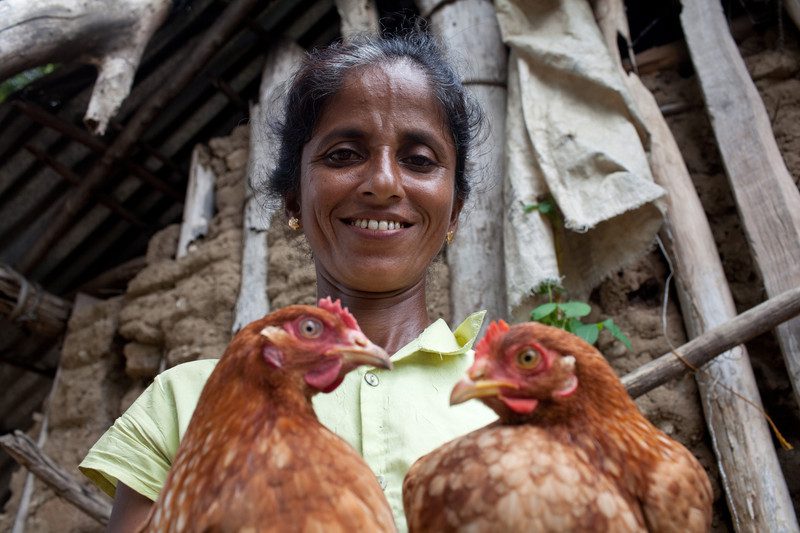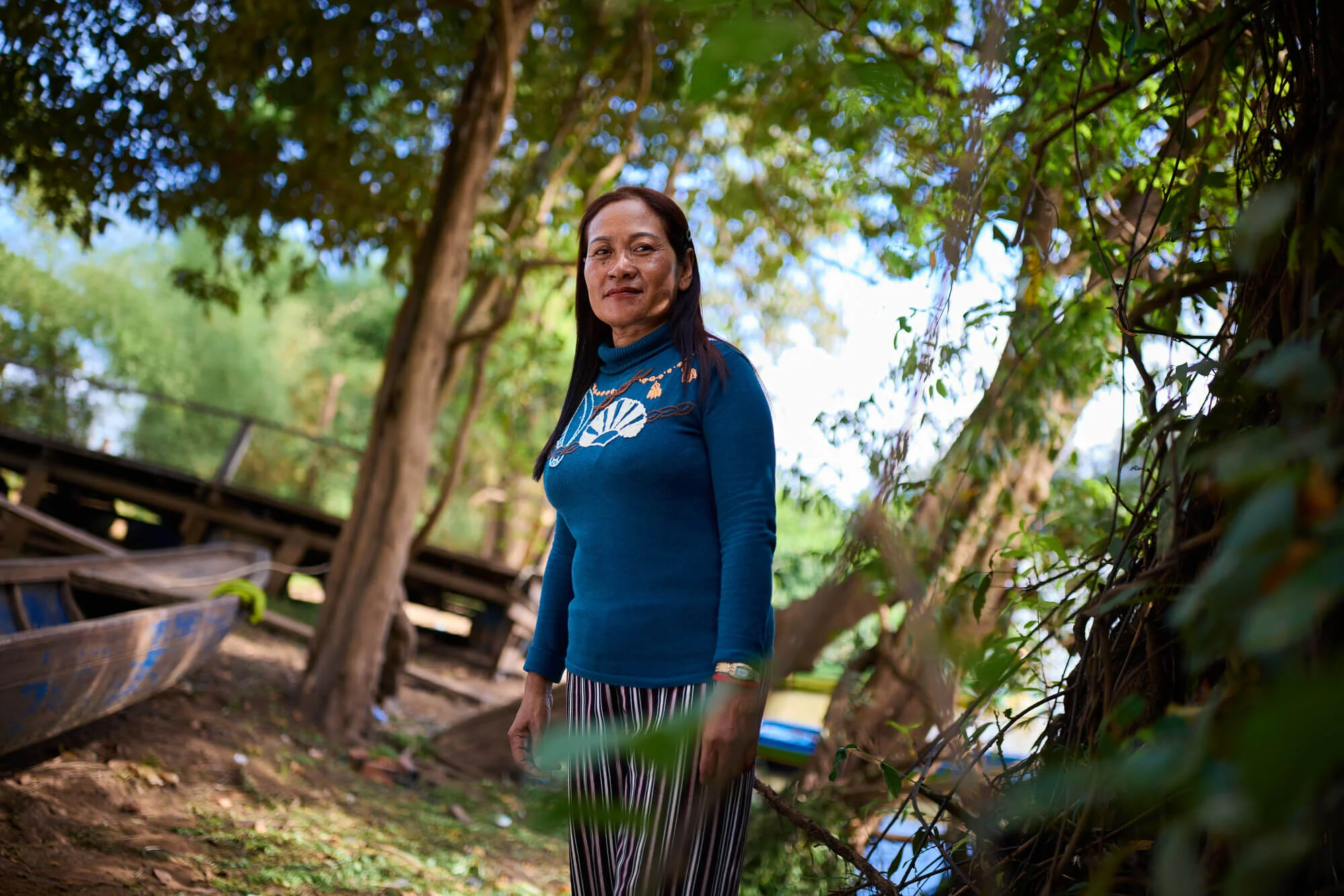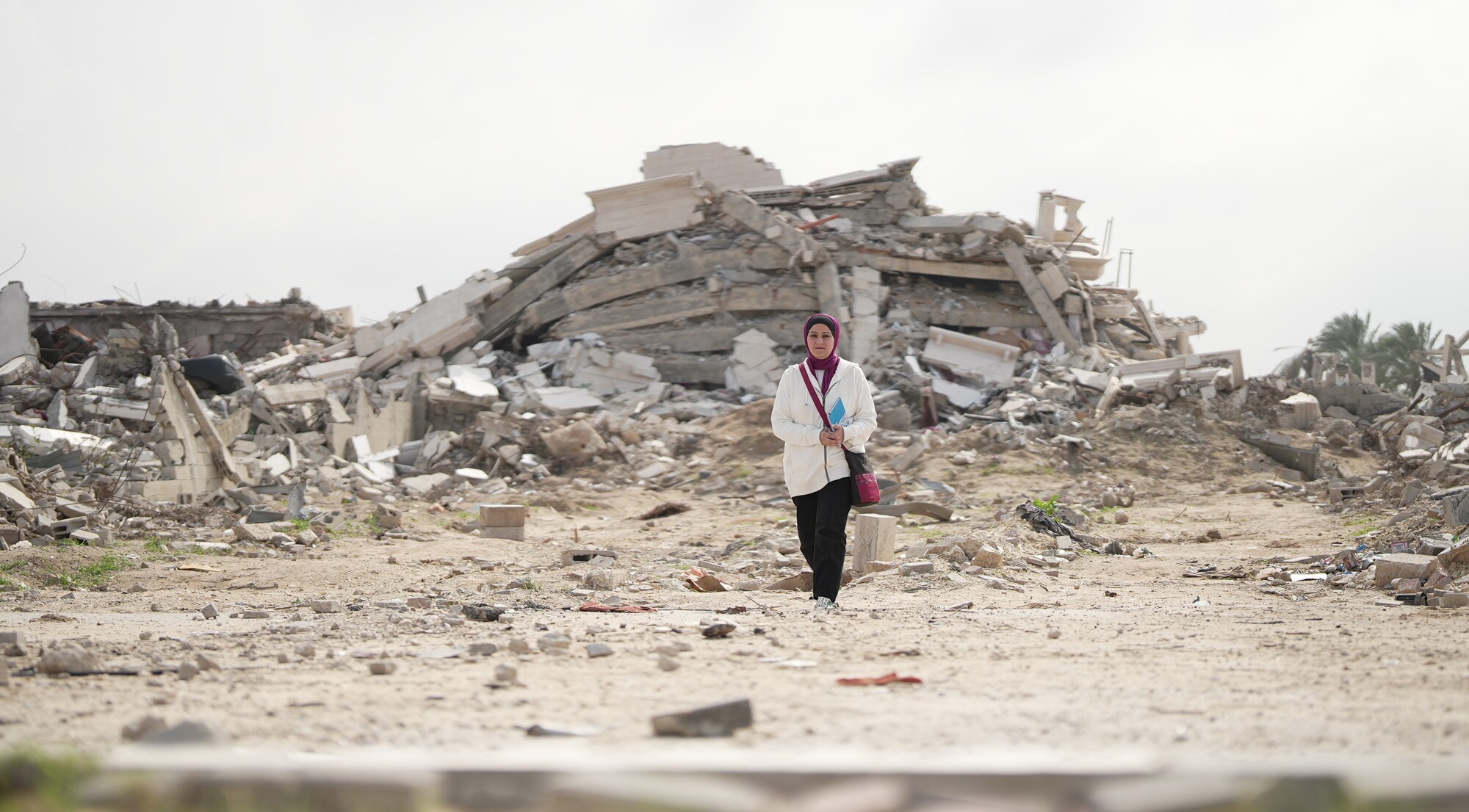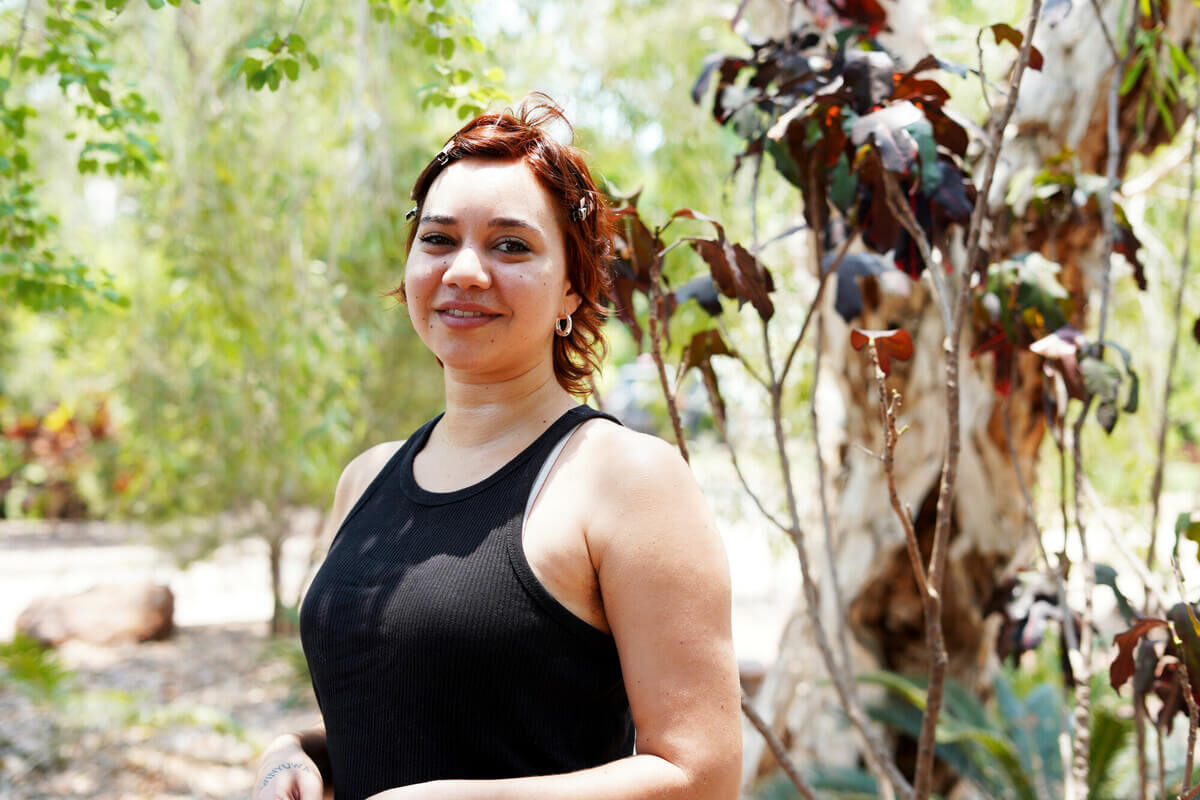She survived the floods and stayed strong when her husband left her. She got her land back after her father-in-law mortgaged it, and now she provides for her family by growing SRI rice and breeding chickens. Little wonder that Sundaradevi feels “both strong and confident” these days.
Interview by Marion Reid
Can you describe your typical day?
In the morning at 8am I go and work there [on her plot of land] up until 12pm. I have my lunch. And after that I work up to 5pm.
Once I got the land for myself I didn’t work in anyone else’s land. I worked on my own land. But I would go and help with the other group members to cultivate and clear their land. We work in a group system and help each other during the cultivation. But I still do a little quarry work on a daily wage. And sometimes I work as a daily labourer to help other people harvest their land.
How did you learn to grow rice using SRI?
I received training though JSSK ― some people from Oxfam came. SRI training was given to all five members in the group. We do not use chemical fertiliser. We make our own compost fertiliser. We sew the grain, and then cover it with compost and hay, and then we open it after three days and seedlings can be seen.
What made you decide to do SRI farming on your land?
We received training … and then we realised for ourselves that this is a really good method of cultivation. So we decided to start it.
How much rice do you harvest in a season now compared to before?
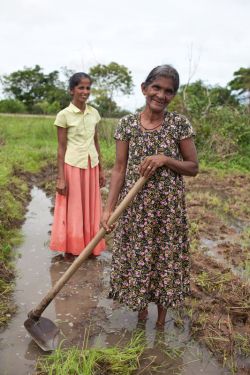
This season we could not get anything because of the flood so I need to try again. The last time I did SRI (before the floods), I got 30 bags of rice. Before, it would vary between 10-15 bags. After adopting SRI I did not have any shortages of food.
Are there any challenges with SRI?
I have never come across any challenges. But others tell me that what I am doing is pointless. The others criticise us.
Do you make enough money selling it?
I can get a good price in the market. I was promised that this season they could pay 100 rupees per kilogram (AUD $1.85). One kilogram of SRI paddy (unprocessed) is 60 rupees (AUD $1.10). For non-SRI rice, it is about 55-60 rupees per kilogram.
We tell people it is SRI rice. We explain that it is free from chemicals, so people are ready to buy it. It is through JSSK that we sell the rice. There are five members in our group. We are from the same village, we know Sinhala and Tamil.
Are changing weather patterns affecting your crops?
There is a change. There is more heavy rain. Before, we experienced 15 days raining in a month and 15 days of sun. Now daily through the month it is raining. But this time I am not scared.
Have you noticed a change in the price of food?
The seed paddy is now 60 rupees ― this is more expensive than before.
You have chickens ― did you buy them with money you saved from SRI?
I saved 5,000 rupees (AUD $92) and then JSSK/Oxfam gave me another 5,000 rupees so I had 10,000 to buy the chickens.
Do you sell the eggs from the chickens?
Some I eat and some I sell. Each egg is 10 rupees (18 cents). But they are not laying daily.
What do you normally eat in a day now?
Rice and curry, roti and eggs. Dahl and summer vegetables.
Have you considered joining a home gardening scheme?
I have not started home gardening but I have fenced the area. I am waiting for some crops from JSSK.
How do you feel having ownership and control over your land?
The one bushel (1/2 acre) of land belongs to me … I make all the decisions and consult with my group. It makes me feel very happy.
I am a leader in the community now. I have the ability to advise others. Others come to me for consultation. I am very happy about this ― I feel both strong and confident. I taught others how to do SRI also. If I go for training I can explain to others how to cultivate SRI.
Find out more
Read more about our work stopping hunger in Sri Lanka
Chandrani’s story: from underpaid labourer to successful home gardener
Find out how your donation to our Stop Hunger Appeal helps women like Sundaradevi
